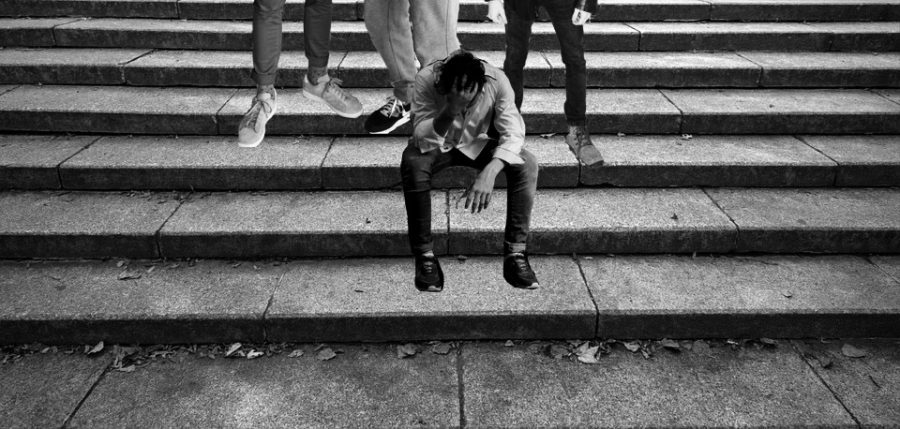Man-acles: The Chains of Male Expectations
In a time when age-long expectations are being challenged, looking at a demographic typically perceived to be the most privileged does warrant a review. Men. Representing a little under half of the total human population, men are seen as privileged, and oftentimes truly are, due to a history of patriarchal rule and contemporary remnants of that age. Yet even those who hold a position of privilege are subject to the expectations of society.
Raewyn Connell states in his paper “Gender, Men, and Masculinities” that there is an assumption that men are the norm. Any discussed issue of gender stems from that idea, how women differ from this norm. As a result, issues of gender for men are not given focus, thus falling into the sidelines when compared to those of women. Of all the problems within the expectations of my gender, one that is hardly discussed but has the greatest impact on the developing youth is the illusion that men must be undoubtedly masculine.
Illustrated in “The Core of Masculinity” and in “The Way of Men” by Jack Donovan, masculinity is the expectation of a man to protect, provide, and procreate. This usually translates to a male’s ability to portray himself as strong to those around him, appear ever-confident amongst his peers, and to fulfill the expectations set by his predecessors, be it his father or the many fathers before him. Some of those expectations are physical, such as the sexual connotation behind procreation or the physical appearances propagated in the media. But societies’ norms of masculinity also revolve around the idea of the man as a fortress of emotional strength and stability. The aforementioned aesthetic traits are extensions of that idea, physical representations of the valued interior attributes. A man must be resolute and cannot show “weakness”. A show of “weakness” would lead to individual marginalization within the male social circle. However, there are some real benefits to a masculine mentality, namely the aspects of gentlemanly behavior and inner emotional strength. Emotional reticence in boys is valued within their community, and some scholars believe that young boys should be encouraged to be more emotionally expressive, but keep masculine ideals in mind. It is argued that, because the concept of ‘problem talking’ is not valued amongst boys, it is not an effective solution to be undertaken. In short, some of the research is conflicting regarding what is acceptable male behavior.
Despite the studies and scientific evidence, sometimes human experience may resonate more with some. So, I present the book “Self-Made Man: One Woman’s Journey Into Manhood and Back Again” by Norah Vincent. Vincent spent 18 months masquerading as a man, going so far as to wear masculine clothes, train her voice, and glue braided wool shavings to her chin to pose as stubble. She was accepted instantly within male circles, but there was a clear roadblock when it came to intimacy with her newfound friends, leaving all emotionally frustrated. Be it at the bowling alley, bars, or even strip clubs she visited as “Ned,” she noticed that men were expected to act a certain way. Even during dates with other women, she noticed how the women would look unfavorably at sensitive “Ned” and favor the typical “manly man.” The mentality was present in both genders. Men who are seen as softer and more vulnerable are ridiculed and, as a result, shunned.
I do not wish to diminish the struggles of other demographics by highlighting the male situation; rather, I intend to bring into light an inherent problem in men’s circles. Men are vulnerable too; we just make an effort to hide it. Men should be encouraged to be more open with their loved ones, family, and friends because no one deserves to be silenced because of their gender.
In my experience, being a man can be a swim against the current. Men are expected to give in to it, and many have, but some try to defy it. Sadly, many a swimmer has drowned at sea attempting to fight the current. So what is it to be a man? For some, to be a man is to be afraid. Afraid of constantly proving yourself to your superiors, your peers, and even your family. Emotionally constipated, never acceptable for sensitivity to surface, lest it be seen as weakness. For others, to be a man is to accept the expectations of masculinity. To be that protector and provider in all its typical settings. In truth, there is no clear cut line for men. Each one has to find that out for himself, to work through the vulnerability and accept what being a man means to you, and question if your vision is truly healthy for the other men around you.
Sources: Encyclopedia of Life Support Systems ,The Way of Men by Jack Donovan, Time.com, “Self Made Man” by Norah Vincent

Now banished to the POV section, as Features grew sick of his terrible puns, Lucca will spend his second year in The Talon furthering his plans for pun...

Lord YeJin strikes back once again in The Talon as the Photographer, the Layout Editor, and the Image Master (finally!). Evicting Gabriel Civita, the former...











Claudia Romero • Nov 22, 2016 at 5:48 am
Nice article. It reminded me of friends working on masculinity workshops, in fact working for gender equality means questioning traditional roles (both of men and women) and working on “healthy” roles both for men and women. Here a link on some of this masculinity workshops. http://www.masculinidadesygenero.org/quienes_somos.html. GOOD JOB LUCCA.